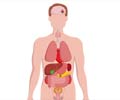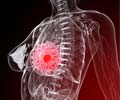A link between mutations in the INPP5E gene and ciliopathies has been established by an international team of researchers.
Led by scientists at the University of California, San Diego School of Medicine, the research team say that their findings may lead to new therapies for these disease.Ciliopathies are a newly emerging group of diseases caused by defects in the function or structure of cellular primary cilia, which are small, cellular appendages of previously unknown function. Examples of ciliopathies include mental retardation, retinal blindness, obesity, polycystic kidney disease, liver fibrosis, ataxia, and some forms of cancer.
Dr. Joseph G. Gleeson, professor of neurosciences and pediatrics at UC San Diego and a Howard Hughes Medical Institute investigator, and his colleagues showed that when two copies of mutated INPP5E are present in an individual, the result is Joubert syndrome, a condition marked by mental retardation and impaired balance.
The researchers linked the function of the protein that is encoded by this gene to enzymatic conversion of one of the most important signalling molecules in the body, phosphatylinositol, currently one of the main targets of the pharmaceutical industry to treat a host of diseases, including cancer.
During the study, the researchers observed that the enzyme goes to a cellular structure known as the cilium, a long-forgotten organelle without clear function until recently.
However, in the past five years, the field of cilia biology has exploded due to the recognition that many of our basic bodily functions are regulated and "fine-tuned" by the cilium.
Advertisement
"Many patients show symptoms that worsen over time. It is possible that if effective treatments were available, they could stop or possibly reverse the course of the disease, and prenatal testing could be made available for patients at risk for these conditions," Nature Genetics quoted Gleeson as saying.
Advertisement
However, according to Gleeson there is recent evidence that one new drug, roscovitine, could arrest polycystic kidney disease, which suggests that similar therapeutical approaches may be helpful in treating other ciliopathies.
One of the most exciting aspects of cilia disease is the connection with obesity.
It is possible that modulation of these pathways could represent new avenues to explore for weight control, according to Gleeson.
Source-ANI
ARU














